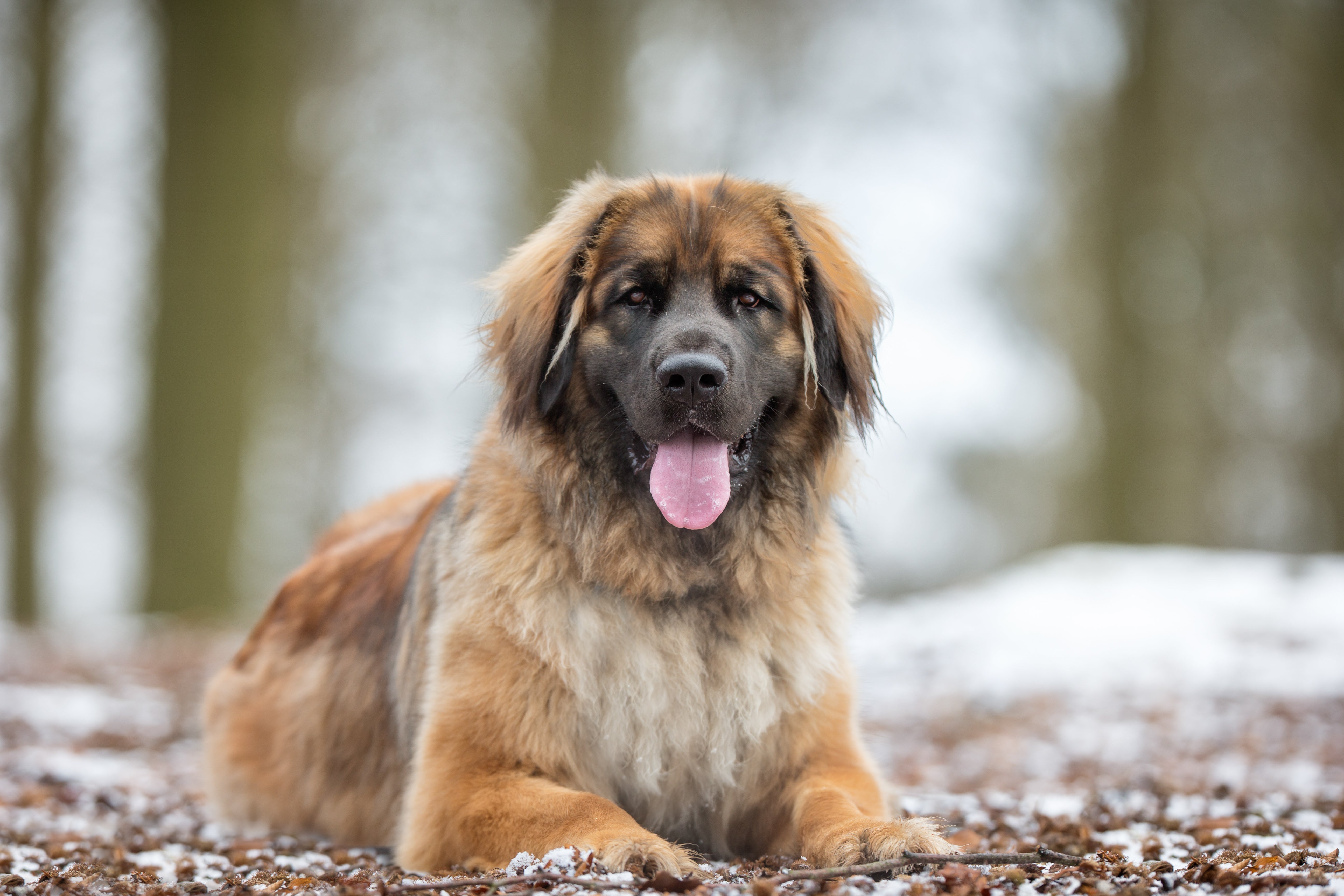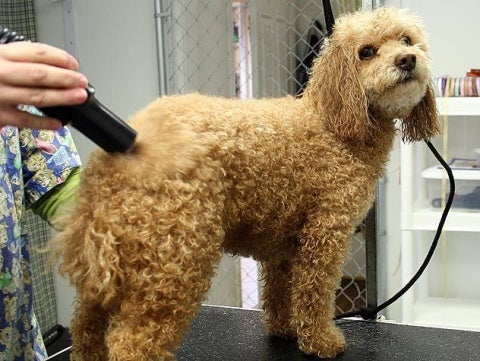Leonberger
The Leonberger is a powerful, majestic breed. These large, muscular companions have webbed feet, making them natural swimmers. Their luxurious double-layer coat comes in various colors—from lion-gold to reddish browns and creams—all with a distinctive black mask. Originally looked to as a family guardian, farmhand, and draft animal, the Leonberger dog retains its strength and working spirit. Despite their size, they are surprisingly light-footed and graceful, moving with a powerful and purposeful gait.
Breed characteristics carousel
Learn More
Need to Know
- Suitable for experienced owners
- Extra training required
- Potential health issues
- Enjoys active walks
- Giant dog
- Some drool
- Requires frequent grooming
- Quiet dog
- Barks, alerts, and may be physically protective/suspicious of visitors
- Could have issues with unknown dogs but gets along with known dogs
- May need additional training to live with other pets
- May need additional supervision to live with children
- Needs a large yard, in suburban or rural areas
- Can be left alone occasionally with training
- AKC Registered Breed

Personality
Leonberger dogs are easy-going and loyal. They are known for their placid and even temperament, but their confidence and strength hint at their watchdog ancestry. Leonbergers are surprisingly playful for their size and endlessly patient with children. They’re also generally quiet and calm indoors, making them wonderful housemates, but their watchful nature ensures they'll always be alert and ready to protect their loved ones.
Originating in the German town of Leonberg in the 1830s, these gentle giants were the brainchild of Heinrich Essig, who sought to create a companion dog fit for royalty. While the exact origins are debated, Essig is believed to have crossed Saint Bernards, Newfoundlands, and possibly the Great Pyrenees to achieve his majestic vision. Leonbergers quickly gained favor with European nobility, including Napoleon III and Tsar Alexander II, solidifying their reputation as regal companions. However, they were also valued working dogs on farms and along waterfronts.
Their agility and swimming prowess made them well-suited for diverse tasks, including cart pulling. Devastatingly, World Wars I and II nearly drove the breed to extinction. Thankfully, dedicated breeders in Germany ensured their survival. Today, they are experiencing a surge in popularity in the U.S.
Owning one of these gentle giants is a commitment. The ideal Leonberger dog breed owner should expect a large food budget, be able to provide ample space to accommodate their stature, and be very patient, as Leonbergers mature slowly and require training tailored to their pace. Previous experience with giant breeds would bode well for an owner of a Leonberger, especially as it relates to understanding the potential health concerns that come with giant breeds.
Leonbergers are active dogs, but their exercise needs can be managed with proper planning. While a large, fenced yard is ideal for sizable Leonberger puppies to roam, adult Leos can thrive on daily walks, jogs, or hikes alongside their human companions. They even enjoy keeping pace with cyclists! Remember, these are working dogs at heart, so consider agility training to provide a healthy outlet for their strength and enthusiasm.
Due to their massive size, Leonberger dogs are not suited for apartment living; they require ample space to thrive. A large house with a fenced-in yard provides them with plenty of room to roam and expend their energy. Living in a rural location is truly preferred as it offers even more freedom for them to explore and safely enjoy the outdoors. If you plan on taking your Leonberger on adventures, consider investing in a spacious vehicle to comfortably accommodate their impressive stature.
Thanks to their luxurious double coat, Leonbergers require regular maintenance to keep their fur healthy and mat-free. Plan for more extensive grooming sessions too; their size means these won't be quick touch-ups. Very frequent brushing is recommended, especially behind the ears and on the legs, which are prone to tangles. A metal comb and undercoat rake will remove loose fur, while a pin brush and slicker brush will smooth and neaten the outer coat.
A Leonberger’s impressive size necessitates consistent training. These are powerful dogs, so it's important to establish yourself as the leader as early as possible. Positive reinforcement training with patience and consistency will go a long way in creating a well-mannered and happy companion.
While Leonberger dogs are gentle companions, their large size might not be ideal for families with very young children. Older families, however, will find them to be fantastic additions to the household, offering loyalty, companionship, and plenty of love.
The cost of a Leonberger from a breeder is significantly more than the cost of adopting one from a local shelter or rescue. The adoption fee usually covers additional items such as spaying or neutering, vaccines, and microchipping.

Learn more about feeding and caring for your Leonberger on Purina.
Did You Know?
- With webbed feet like a duck, Leonbergers are natural swimmers and have even served as water rescue dogs
- Developed to resemble the lion on their namesake town's crest, Leonbergers quickly gained favor with European nobility. Owners included Napoleon III, Tsar Alexander II, and composers like Richard Wagner.

